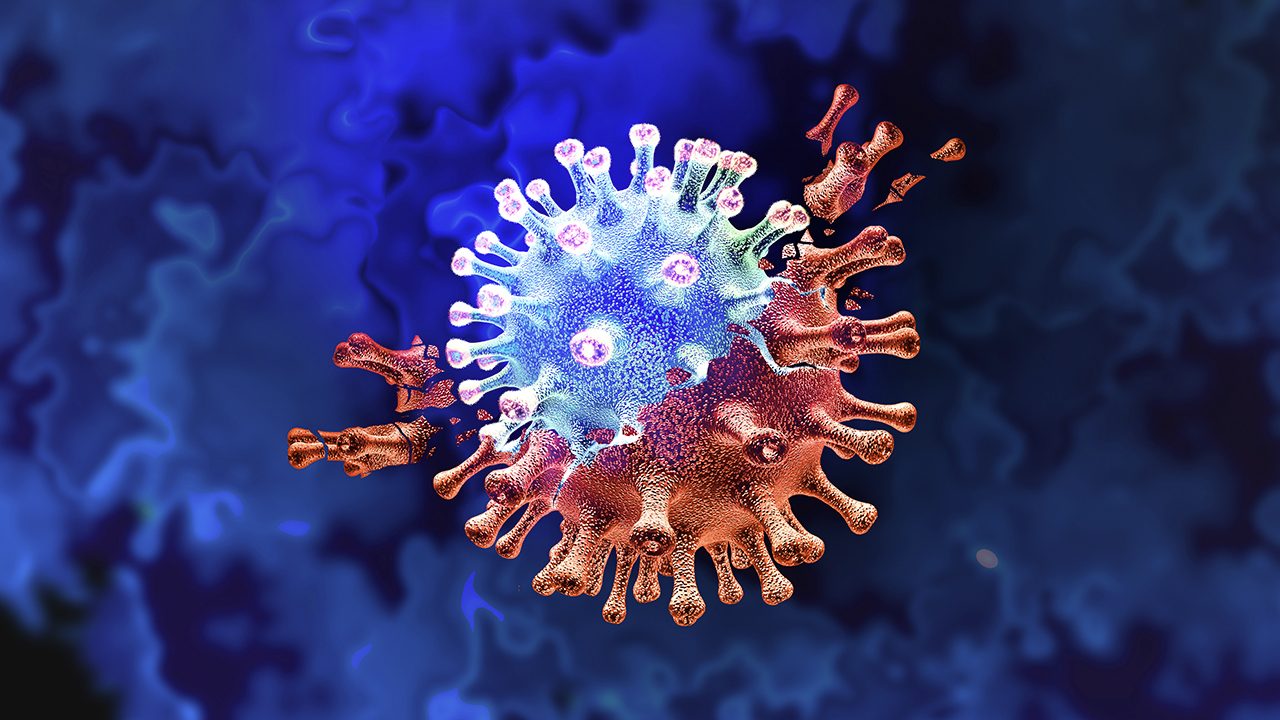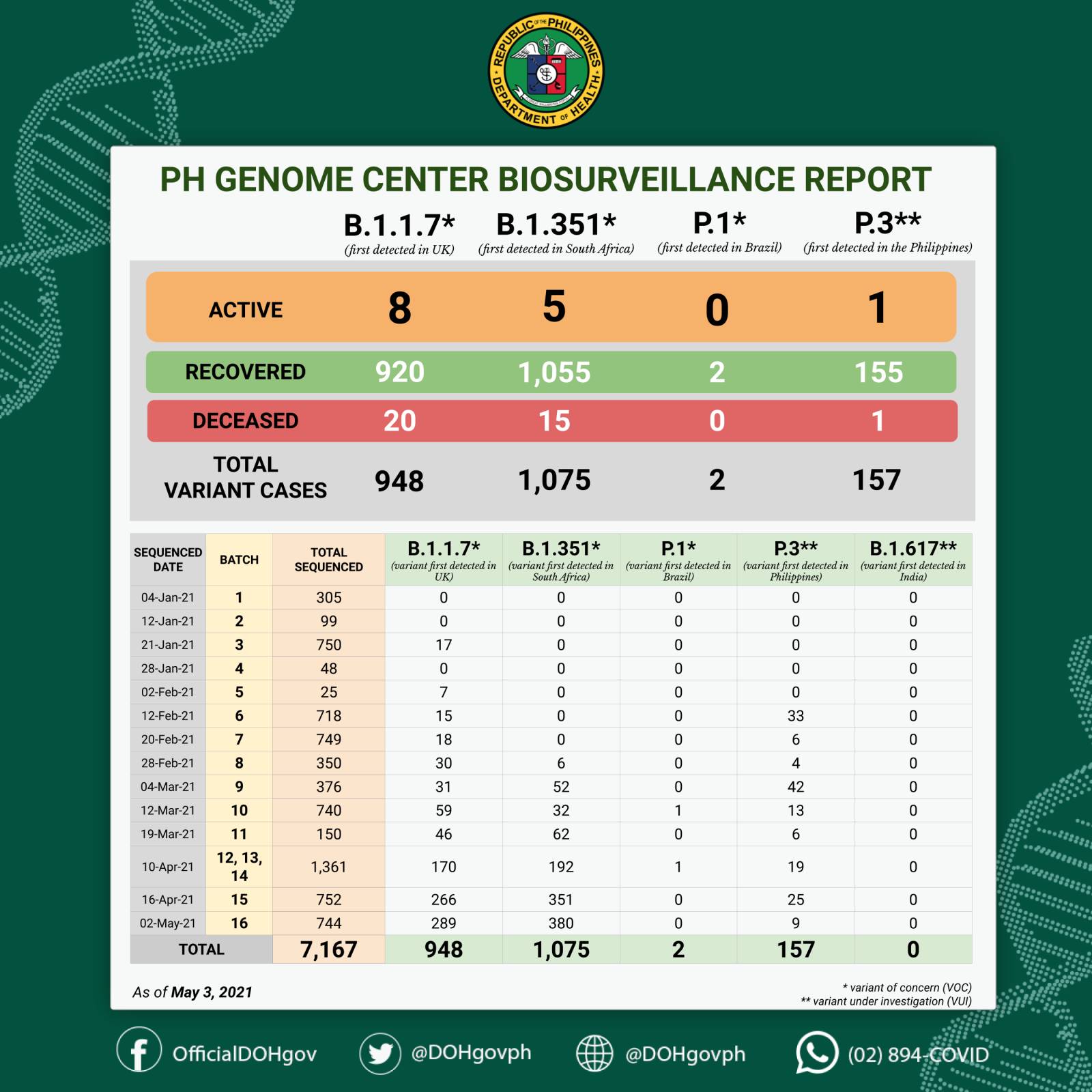SUMMARY
This is AI generated summarization, which may have errors. For context, always refer to the full article.

An infectious disease expert said on Thursday, May 6, that the Philippines is testing a “very small” number of samples for the presence of the new variants of COVID-19, which are believed to be more infectious than the original version of the virus.
In an online forum, Dr Rontgene Solante, chief of the Adult Infectious Diseases and Tropical Medicine unit at the San Lazaro Hospital, said it was difficult to asses if the B1351 variant of COVID-19, which was first found in South Africa, is the most dominant variant in the country now.
“We don’t know yet if the B1351 is the dominant variant kasi ‘yung nasample ng PGC (Philippine Genome Center) napakaliit lang niyan (because the Philippine Genome Center was only able to test a very small number of samples),” Solante said.
Citing the case of other countries, Solante said they were able to test 20% to 30% of the total positive samples for COVID-19 so they were able to say that a particular variant of COVID-19 is dominant there.
“So doon, nakikita na nila yung trend, but if you only [have] samples of 6,000 or 8,000 out of the 1 million positives, medyo mahirap magsabi na ito na yung dominant variant. That’s my thought. Hindi ako makakasabi na ito na ‘yung dominant variant,” he added.
(So in other countries, they could see the trend, but if you only have samples of 6,000 or 8,000 out of the 1 million positives, it’s difficult to say that a particular variant is dominant. That’s my thought. I cannot really say that this is the dominant variant.)
PGC, which leads the Philippines’ biogenomic surveillance, is only able to do genome sequencing of around 700 samples per batch.
Genomic sequencing is the process of analyzing the virus sample taken from a diagnosed patient and comparing it with other cases to see whether those who tested positive for COVID-19 have the new variants.
So far, a total of 7,167 positive samples have undergone genome sequencing. Of which, 2,182 turned out to have new variants of COVID-19.
- B1351 (first found in South Africa) – 1,075
- B117 (first found in United Kingdom) – 948
- P1 (first found in Brazil) – 2
- P3 (first found in the Philippines) – 157

A year into the pandemic, the Philippines is still struggling to contain the spread of COVID-19, with 1,080,172 total infections as of May 6. Of these, 999,011 have recovered and 17,991 have died.
In a statement on Thursday morning, the DOH said it is doing “purposive sampling to ensure a higher likelihood of detecting the variant, which means that more samples are taken from areas, clusters, and groups of people” that are likely to have the new variants of COVID-19.
“Hence, there is a disproportionately higher number of samples being sequenced from areas with reported clustering, increased severe and critical cases, and a bigger presence of returning overseas Filipinos,” it added.

– Rappler.com
Add a comment
How does this make you feel?
There are no comments yet. Add your comment to start the conversation.